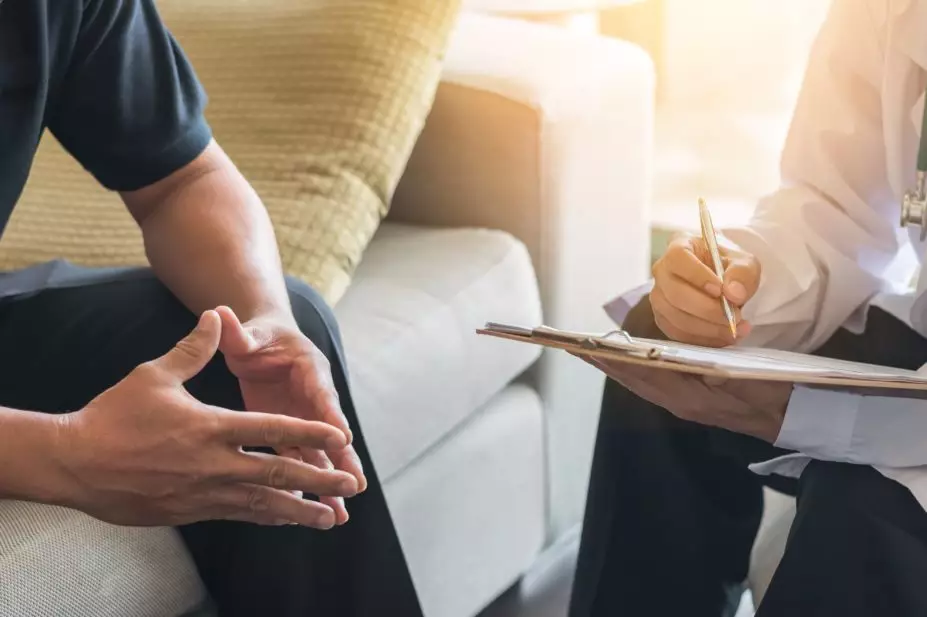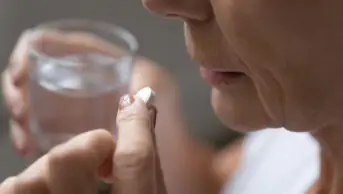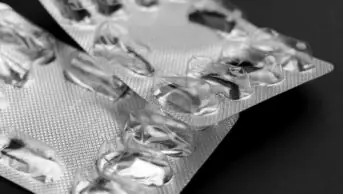
Shutterstock.com
Don’t get me wrong: before you read on, know that this is not a grievance. I am immensely proud of and grateful for the healthcare staff who work tirelessly to provide people like me with a free, and ultimately life-saving, service.
But, having said that, it’s not perfect.
As a long-term heart patient, I have had many ups and downs in the NHS. As an inpatient, outpatient and “next patient”, I know that there is one major improvement to be made — and that’s listening to patients, really listening to them.
Being ignored
It’s so frustrating to be left out of the conversation, especially when you are the subject matter. From consultants standing at the end of your hospital bed talking to their team, to a pharmacist at the counter handing you that box of ferrous fumarate you were deprescribed four months ago — not being heard can wear down a patient’s confidence in the system, but it could also put them in life-altering situations.
Not being listened to drastically altered my life. Here’s a shining example of how easy it is to dismiss a patient’s concerns.
In 2009, my specialty team wanted to get me off heparin injections and onto something that would do the same job, while being easier to administer. They wanted to put me on steroids.
I was immediately against the idea. I knew about the Jekyll-and-Hyde relationship a steroid can have with your body. I said outright I would prefer to remain on the heparin while they kept looking for other alternatives. But, it appeared, the decision had already been made. My concerns were laughed off. I was told these steroids were ‘localised’: they would stay in the gut and I wouldn’t experience the typical side effects of its sister drugs.
As the team of healthcare professionals stood at the foot of my hospital bed — scribbling notes and smiling politely — it was announced that I was to begin my steroid treatment that morning. I told them a final time that I was against this, but they just smiled and moved on.
I can still see this moment in my mind, as clear as I see the words here. I curse myself for not being assertive enough. I get mad at myself for not point-blank refusing to swallow the medicine.
I have hated myself for ten years.
Ten years. A decade of my life taking a drug I had never wanted to be on. Unsurprisingly, the side effects reared their ugly head and my quality of life was ripped away from me.
The toll
Of all the horrible things steroids can do to a human body, no one really explains to you the effect they can have on your mental health. For all the good times I celebrated during those 10 years, I can think of 15 awful times I wish I could forget.
Like the photographs of my mum’s 60th birthday. I was unrecognisable thanks to my swollen, glowing face, so typical of a steroid user. I felt like an embarrassment next to my brothers and mum. I cropped myself out of the photographs. I didn’t want my mum remembering me that way, but mostly I did not want to be reminded of how horrendous I looked; not just in that moment in time, but for years after.
The side effects infiltrated every aspect of my life. Swimming, for example, is a big part of it. With my heart condition, many sports are out of the question; but in the pool, I don’t hurt, and I feel just like everyone else. But when I began taking the steroids, my immune system became compromised. Like most regular swimmers, I always had the odd verruca on my sole, but with no immune system to keep it at bay they soon spread. First, across my left foot covering the toes, arch and heel, and then to the right.
After a few years, despite many painful cryotherapy (cold therapy) sessions with dermatology, the lesions spread to my hands. I had to wear diving pumps in the shower at home to protect my husband, and I had to wear gloves to wash myself in fear that they may spread any further. I lived like this for seven years.
Seven years.
In supermarkets, cashiers threw my change down at the end of the conveyor because they didn’t want to touch my hands. I became terrified of visiting friends’ houses because my feet would smell so bad. I’d spray them with deodorant, coat them in talc — anything to avoid the shame of admitting that the smell was my feet.
Needless to say, I had to give up swimming. And at my lowest, I took a knife to my sole in an attempt to carve off the skin.
I hated my life, I hated my body, and I hate the day I took that first steroid.
What about withdrawal?
What really upsets me is how difficult it was to come off the medicine, and the fact that I was never told about the eventual withdrawal process. My healthcare professionals were quick to tell me the good the drug may do, and were forthcoming with the potential side effects I may experience. But no one ever told me how to stop.
I was told my treatment would be short term, but seven years later I was still taking them at the dose I started on in 2009. It was only after more than a year of complaining to my multidisciplinary cardio team that I really did not want to be on them any longer, that a plan was put in place to wean me off the steroid for good. I was so excited. Pharmacy put together a table for me to follow over two weeks, slowly reducing the dose until finally I would be free.
But when is life ever that easy? The two weeks passed, and I was officially going cold turkey and feeling OK. I had arranged with a friend to go to Liverpool for the day. We got the train and spent the morning in a museum, where I started to feel funny. We took an early lunch to get off our feet, and by the afternoon my skin was blue and I was struggling to breathe. My poor friend had to carry me back to the station. I did not want to end up in a hospital in Liverpool; I had to get back to my cardio team who were aware of my condition.
My body was not producing the natural steroid needed to keep a body functioning. My lungs filled with liquid. I could not walk to the bathroom without turning blue and weak. So it was decided I would be put back on the steroid. I sunk into a depression. I hated myself even more. Am I bound to this hateful medicine for the rest of my life? Life repeated itself: the side effects returned.
New hope
It wasn’t until spring 2019 that my new doctor agreed to weaning me off steroids for good. I was reluctant to allow myself to get excited after the last time. A plan was set but I remained doubtful.
A month into the plan I felt the same sensations I had felt the first time my steroid had been reduced. I talked to the cardiologist, who listened, and then did something that really caught me off guard: she told me I know my body best, so why don’t I make the reduction plan?
I made a table and worked out the slowest way to reduce the steroid that could keep me in good health and eventually have me free of the drug once and for all. It would take a long time — nine months — but I knew it was a sacrifice I was ready to make to safely get off the drug.
In February 2020, I finally became free of steroids. I was free after ten years of misery, all because of one little decision that I was not allowed to be a part of. Within a month, all the warts on my hands and feet disappeared, to my astonishment and my dermatologist’s. For healthcare professionals, steroids may be a wonder drug, but they will never appreciate the toll the patient must pay for it if they never experience it firsthand.
I had to share my experiences, to make sure this never happened to a patient again, and I got involved with the Royal Pharmaceutical Society West Yorkshire branch’s event, ‘Patients as Partners’ — a chance for healthcare staff and academics to have their eyes opened by true accounts from real patients, and patients experience projects by pharmacists.
I told my story, raw and honest, and it was received so openly by the many pharmacists there. That night, they had a window into our lives, and I felt their empathy. It was so powerful to be part of a room full of people waking up to a serious problem that had been so ingrained in my everyday life that it had become normal.
I’m so grateful to these pharmacists, and I feel hope that I, and many people in my shoes, can be proud of the profession’s future. Pharmacy will be patient-centred. It will have an empathetic ear. It will solve problems as soon as they arise. And, most of all, it will remain a prominent, respected and trusted part of the community.
What pharmacy means to me
As a patient, pharmacy means more to me than a trip out to a high-street shop. Pharmacy is a huge part of my life. Each month, it is there for me: from a change in dose to stocking up for a holiday abroad, and even making sure I have enough of my medication to last over Christmas.
I have been fortunate enough to have three pharmacists in my lifetime who have gone above and beyond to simplify my experience. It wasn’t because they gave me the medicines I needed when I needed them. It goes deeper than that — it was the relationship we had. It was the trust and respect from one to the other. If I had doubts or queries, I knew I could pull them to one side, and they would listen and advise. This partnership can really change a patient’s life.
To have gone through this awful experience, it’s so comforting to have a pharmacist who sees me as more than just a number in a crowd, and a doctor who allows me to carve out my own plans for my own care.
All healthcare professionals should strive to see the human inside the patient. The patient’s experience does not end when they walk out of that door.
Andrew Taylor, patient partner, Bradford


